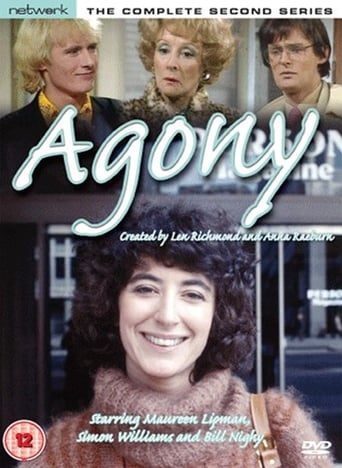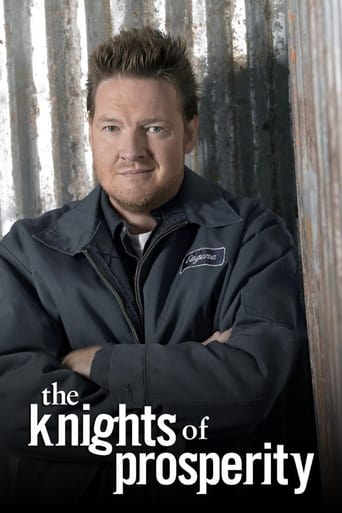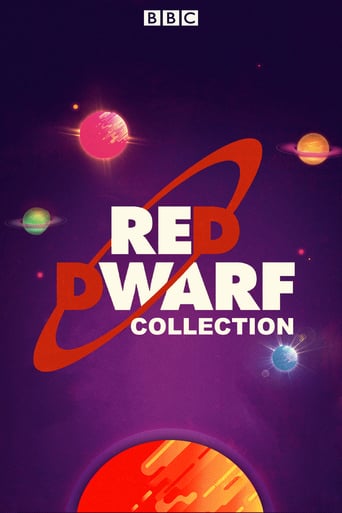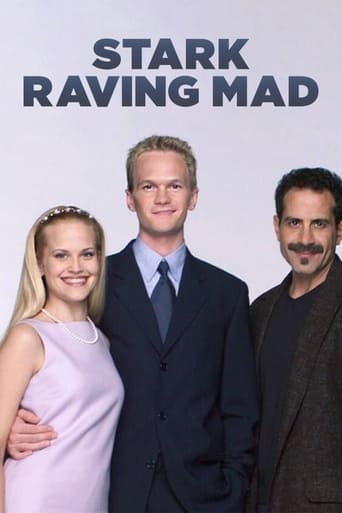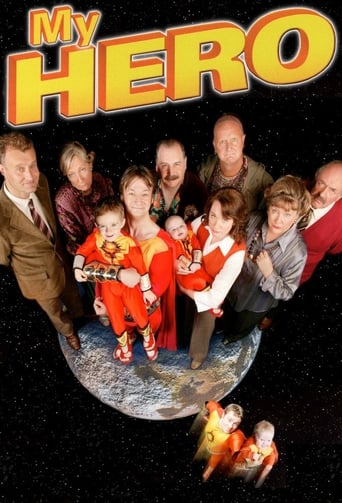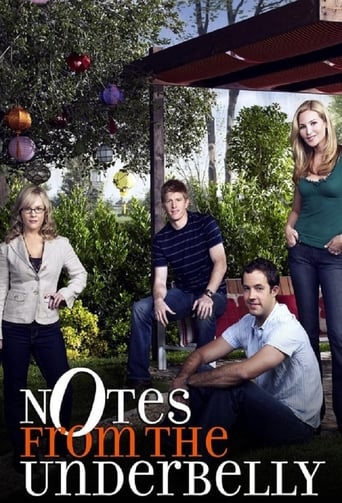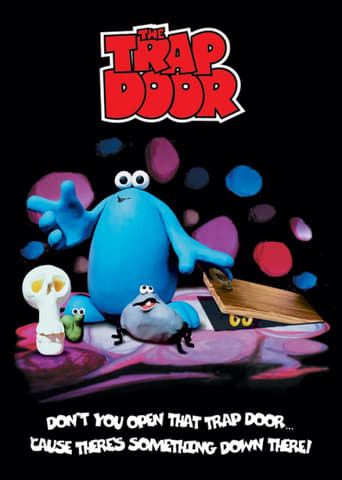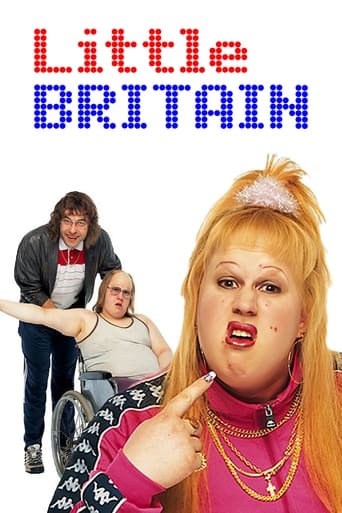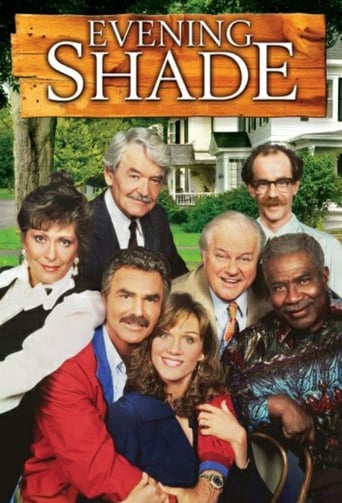Agony (1979)
Agony
1979 / NR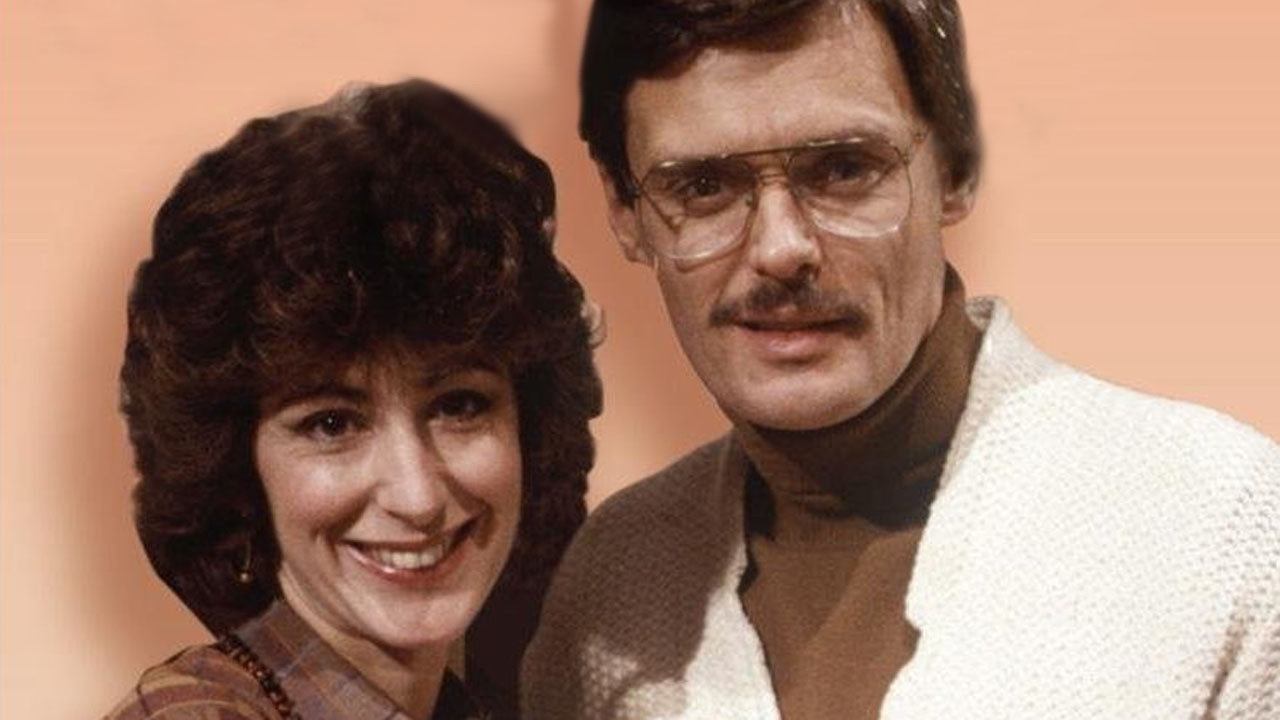
Agony is a British sitcom that aired on ITV from 1979 to 1981. It starred Maureen Lipman as a successful agony aunt but whose own personal life and marriage is a disaster. It was written by Len Richmond, Anna Raeburn, Stan Hey and Andrew Nickolds. It was made for the ITV network by LWT. Although a comedy, Agony sometimes dealt with issues that were seen as taboo at the time such as drug use, racism, abortion, interracial relationships, and swinging, and was the first British sitcom to portray a gay couple as non-camp, witty, intelligent and happy people. It also openly mocked the government, the ruling classes, and religion, and occasionally contained dark and dramatic storylines.
Seasons & Episode

Jane encounters a broad range of opposition when she decides to stop working and be a full time wife and mother.

Jane and Laurence wait for their baby while attending a baby care class run by a strange woman and trying to help Michael deal with a fight with Rob.

Jane continues helping people from her hospital bed as a black nurse faces the anger of her superior and Val runs off with Andy Evol.

Jane's investigation into group therapy uncovers a problem in her marriage and in that of Val and Andy.

Jane and Laurence's quarrel over having young Michael circumcised uncovers hidden prejudices.

Jane and Laurence grow farther apart when their baby is kidnapped by a disturbed man.

Laurence tries to win Jane back and she throws a New Year's Eve party that promises to change many people's lives.
Agony is a British sitcom that aired on ITV from 1979 to 1981. It starred Maureen Lipman as a successful agony aunt but whose own personal life and marriage is a disaster. It was written by Len Richmond, Anna Raeburn, Stan Hey and Andrew Nickolds. It was made for the ITV network by LWT. Although a comedy, Agony sometimes dealt with issues that were seen as taboo at the time such as drug use, racism, abortion, interracial relationships, and swinging, and was the first British sitcom to portray a gay couple as non-camp, witty, intelligent and happy people. It also openly mocked the government, the ruling classes, and religion, and occasionally contained dark and dramatic storylines.
Watch Trailer
Free Trial Channels


